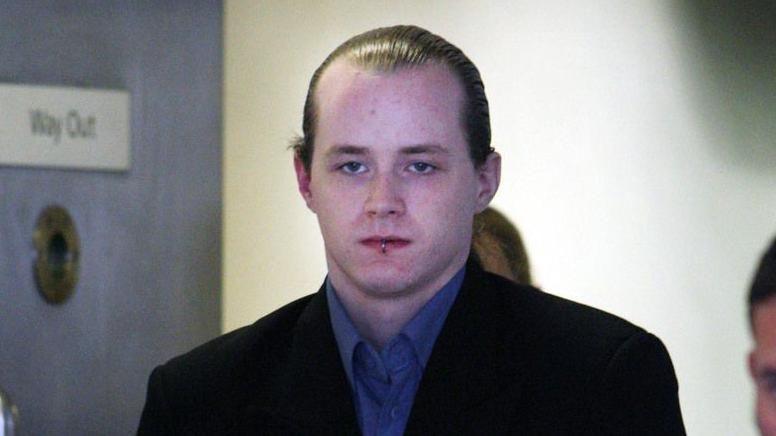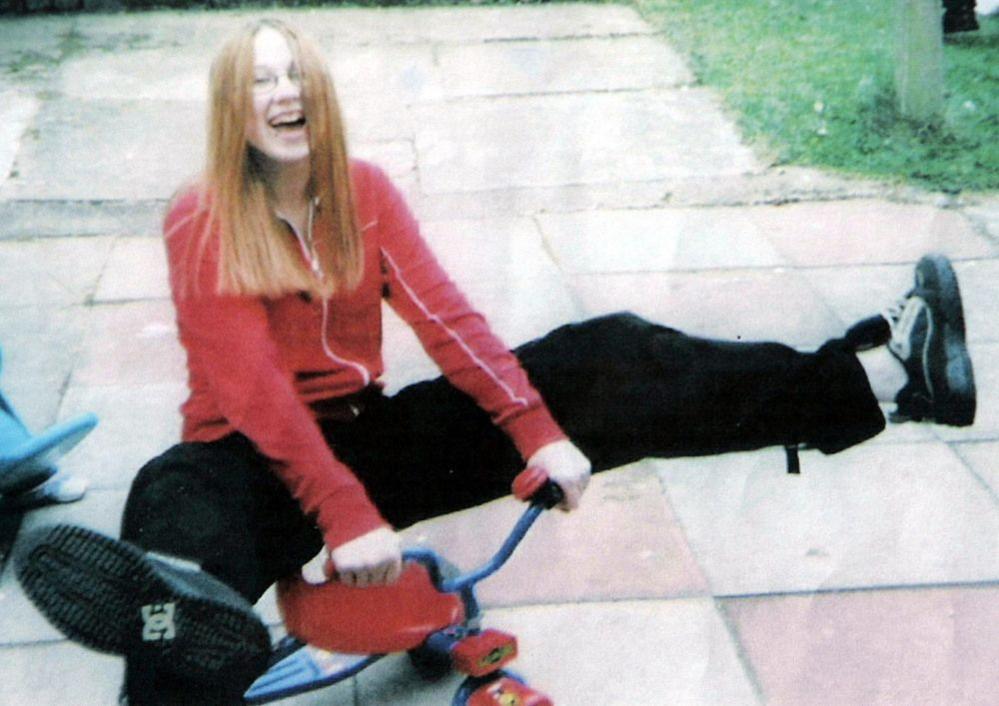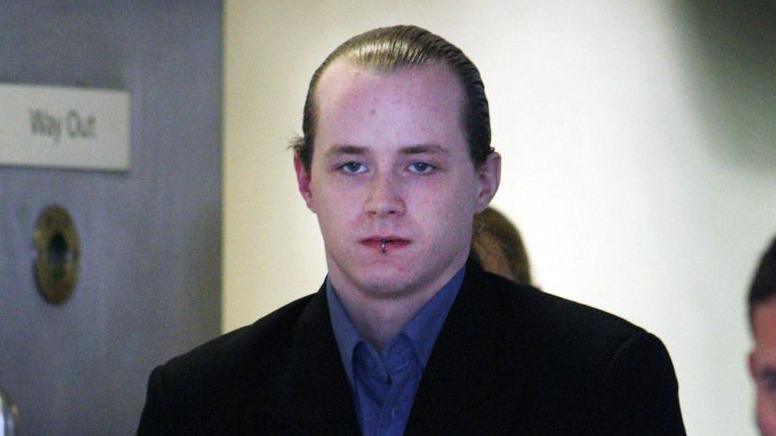Jodi Jones killer loses challenge against parole ruling

Luke Mitchell, pictured here in 2008, was sentenced to life in prison for murder
- Published
Convicted murderer Luke Mitchell has failed to win a legal bid at Scotland's highest civil court over a parole board decision to keep him in prison.
Mitchell stabbed 14-year-old Jodi Jones to death in the woods near her home in Dalkeith, Midlothian, in 2003. They had been dating for four months.
He was convicted at the High Court in Edinburgh in 2005 and sentenced to a minimum of 20 years in prison.
Mitchell, now 36, said a hearing last year - which was his first opportunity to be considered for release - was procedurally unfair and failed to consider all the evidence.
The killer instructed lawyers to go to the Court of Session in a bid to show that the board acted unlawfully in how it decided to keep him in jail.
The court heard Mitchell wanted the hearing adjourned as he wanted to consult his lawyer about a report which detailed the risk that assessors thought he posed to public safety.
Mitchell had the document in a redacted form while the parole board had it in an unredacted form.
His request for adjournment was denied and instead the report was set aside.
The board concluded he should not get parole.
Judge Lady Haldane heard that the board decided not to consider the report in its deliberations.
It used other evidence to make its findings that Mitchell should remain in prison.
Mitchell's advocate Shaun McPhee said the board should have considered the report and his client should have been given access to the unredacted version of it.
He said the decision was unlawful, despite the fact that the report contained information which would not have assisted Mitchell's case.
Lawyers for the parole board told Lady Haldane that the organisation acted lawfully.
Advocate Mark Lindsay KC said the author of the report was a doctor who Mitchell believed to be so "biased" that he is reporting him to the General Medical Council about his alleged failures.
Mr Lindsay said he could not understand why Mitchell thought the report could have assisted his parole bid.
He added: "The petitioner believes this to be a fundamentally flawed report and yet considers it to be procedurally unfair for the respondents not to have considered it."
Procedure was 'not unfair'
In a written judgement, Lady Haldane rejected the arguments made to her by Mitchell's lawyer.
The judge said the report, which was "adverse" in its conclusions about Mitchell and "heavily criticised" by him, was not taken into account in the assessment of risk.
"This approach accorded entirely with the relevant rules and guidance and in any event was not unfair to the petitioner," she said.
Lady Haldane said there was no basis to conclude the "skilled and experienced" members of the parole board did not put the report out of their mind when making the decision.
"They felt able to reach a unanimous conclusion based on the other material before them," she added.

Jodi Jones who was found murdered in June 2003 near her home in Dalkeith
Mitchell was just was 14 when he stabbed Jodi to death in woods near her home in what judge Lord Nimmo Smith later described as "a truly evil murder".
The schoolgirl had failed to return home on the evening of 30 June 2003, and Mitchell claimed to have been alerted to her body by his dog while out looking for her.
She was discovered with her hands tied behind her back, her throat cut and her body repeatedly slashed.
Following a 10-month police inquiry, Mitchell was accused of her murder.
He was just 16 when he was convicted at the High Court in Edinburgh in 2005.
Mitchell was sentenced to serve a minimum term of 20 years before being eligible for parole.
He has lost four appeals but has attracted a significant following of online supporters convinced of his innocence since a TV documentary was aired in 2021.
Mitchell became eligible for parole last April because the time he spent on remand ahead of his trial is taken into account.
Legal papers lodged during the action told of how he thought parole board members were "more concerned" about the feelings of a "victim" of his offending.
They also revealed he was aware that a "victim of the offence" was observing proceedings.
And they detailed that he got the impression the panel was more concerned about the impact the adjournment would have on them than the fairness of his hearing.
Mr Lindsay told the court that the parole board was obliged to hold another hearing before April this year.
The panel at that hearing will consider all evidence about Mitchell's suitability for release afresh.
Related topics
- Published7 February
